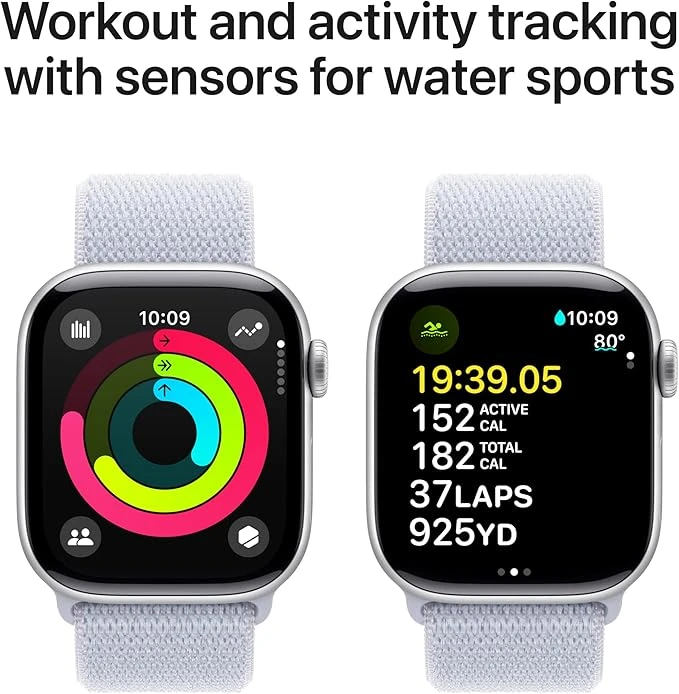Smart rings are no longer futuristic gimmicks—they’ve become one of the hottest wearable trends of 2025.
According to Statista, the smart ring market has grown by nearly 20% year-over-year, outpacing even some smartwatch segments.
Their appeal is clear: they’re discreet, stylish, and packed with health-tracking technology that rivals larger devices like the Apple Watch or Fitbit.
But there’s a catch. Many smart rings lock their best features behind recurring fees.
The Oura Ring, for example, costs around $72 per year in subscription fees on top of its already premium hardware price. For many users, this creates subscription fatigue, especially when they already juggle Netflix, Spotify, and cloud storage bills.
Even more concerning, users across X (formerly Twitter) and Reddit have been voicing privacy concerns.
Who owns your sleep, stress, or heart rate data once it’s uploaded to the cloud? Can you opt out of data sharing?
These questions have become central to choosing a wearable in 2025.
The good news: a growing wave of smart rings now offers full access to advanced health tracking without a subscription.
These devices let you pay once, own your data, and enjoy all features without worrying about a monthly charge.
In this guide, we’ll compare the top no-subscription smart rings of 2025, explore their privacy policies, and help you decide which model best fits your lifestyle—whether you’re an athlete, a professional, a woman tracking cycles, or a senior who just wants simplicity.
Top 5 Smart Rings Without a Subscription in 2025
We've segmented our top picks into specific categories to help you find the perfect match.
- Best Overall: Ultrahuman Ring Air
- Best for Samsung Users: Samsung Galaxy Ring
- Best Budget-Friendly Option: RingConn Gen 2 Air
- Solid Affordable Option: Amazfit Helio Ring
- Emerging Contender with ECG: Circular Ring 2
Why Choose a No-Subscription Smart Ring?
Smart rings were originally marketed as premium devices with mandatory memberships. But in 2025, the tide is turning.
The Subscription Fatigue Problem
Users are increasingly tired of paying for access to their own health data. As tech influencer Mukul Sharma noted on X, the Samsung Galaxy Ring’s no-subscription model was a major reason for its viral buzz. People are ready to ditch recurring costs, especially for something as personal as health metrics.
Full Access Without Fees
When you buy a no-subscription smart ring, you typically get complete access to features like sleep stages, HRV (heart rate variability), stress tracking, and workout logs without restrictions. This is a huge relief compared to subscription-gated devices where features like readiness scores or monthly reports are locked.
Privacy Comes First
Equally important is how your data is stored. Brands like Ultrahuman have adopted a local-first approach, meaning your sleep and HRV data can stay on your device or app without being uploaded to external servers. With GDPR and global privacy regulations tightening in 2025, this focus on data sovereignty is more important than ever.
Industry Trend: Subscription-Free Models Rising
What was once an exception is quickly becoming the norm. Devices like the Circular Ring 2—launching this year—are joining the subscription-free movement.
As WIRED recently reported, brands are realizing users prefer upfront pricing over hidden fees.
Expect this to be the dominant trend by 2026.
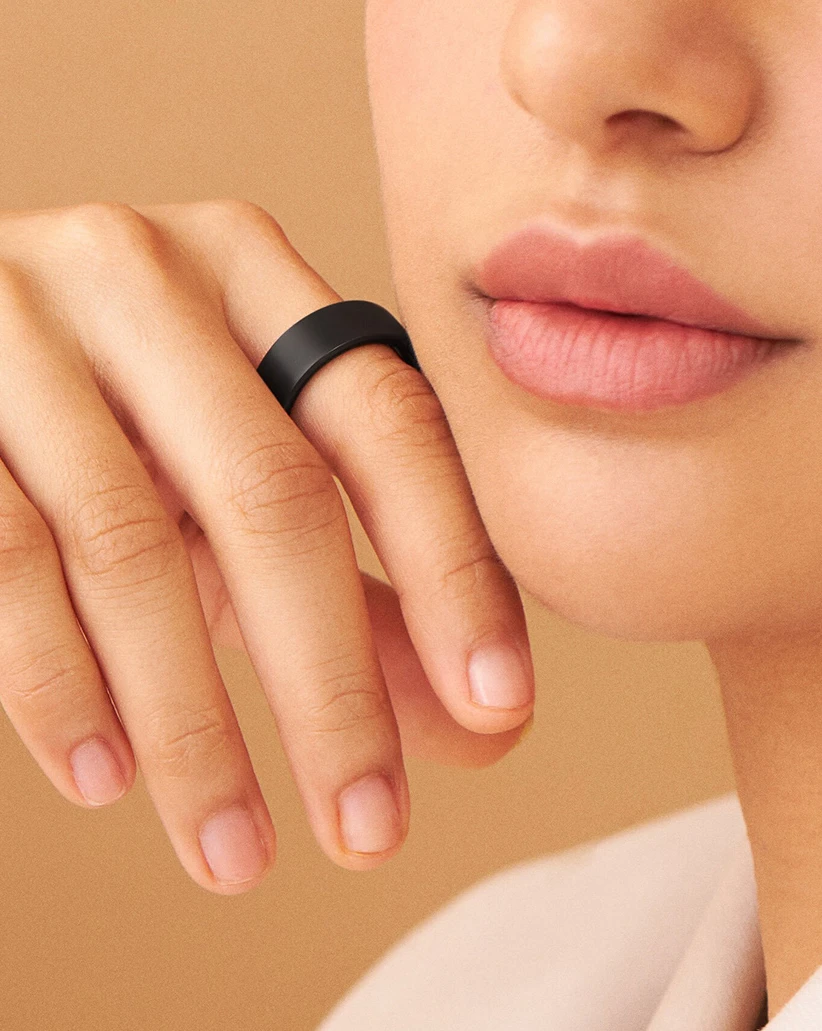
Pros
- Highly accurate sleep tracking (~90% per WIRED)
- Local-first data storage for stronger privacy
- Ultra-lightweight at only 2.4g
- Polished app interface with HRV and stress tracking
Cons
- No ECG feature
- Premium price at $349 compared to budget models
Key Specifications
| Battery Life | 5–6 days |
| Weight | 2.4 grams |
| Tracking Features | Sleep, HRV, stress, steps, workouts |
| ECG | Not available |
| Price | $349 |
"The Ultrahuman Ring Air balances comfort, accuracy, and privacy in a way few rings can match. With its lightweight design and local-first data model, it’s perfect for athletes and professionals who want reliable insights without subscription fees. While it lacks ECG, its strong sleep and stress tracking make it a top overall pick."
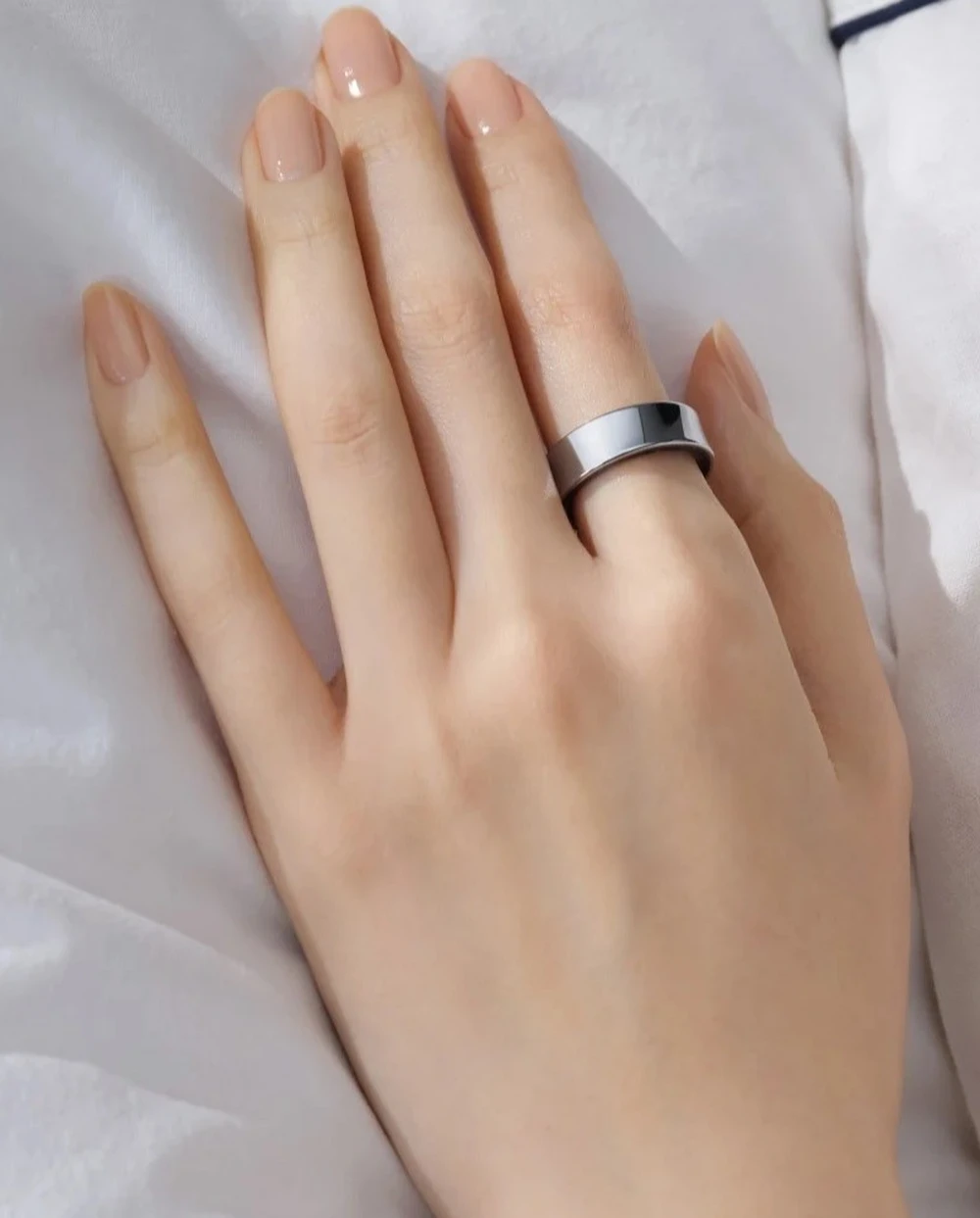
Pros
- Energy Score & AI-driven health insights
- 6–7 days battery life with NFC payments
- Seamless integration with Samsung Health & Galaxy ecosystem
- Strong encryption via Samsung Knox
Cons
- Limited iOS support
- Higher price at $399
Key Specifications
| Battery Life | 6–7 days |
| Tracking Features | Energy score, sleep, stress, HR |
| Special Features | NFC payments, Samsung Health integration |
| Ecosystem | Best with Samsung Galaxy devices |
| Price | $399 |
"The Galaxy Ring is the ultimate pick for Samsung users. With NFC, AI health insights, and Knox-level privacy, it integrates beautifully with the Galaxy ecosystem. However, its limited iOS support makes it less attractive for Apple users. Best suited for professionals and Galaxy loyalists."

Pros
- 10–12 days of battery life with portable charging case
- Tracks HR, SpO₂, and activity basics
- Affordable at $199
- Beginner-friendly setup
Cons
- Less accurate tracking than premium models
- App is less polished
Key Specifications
| Battery Life | 10–12 days + charging case |
| Tracking Features | Heart rate, SpO₂, activity basics |
| Cloud Use | Minimal, basic encryption |
| Price | $199 |
"RingConn Gen 2 Air proves you don’t need to spend big to get into smart rings. With unmatched battery life and a beginner-friendly design, it’s perfect for students or first-time buyers. While accuracy lags behind Ultrahuman and Samsung, its value at $199 is hard to beat."
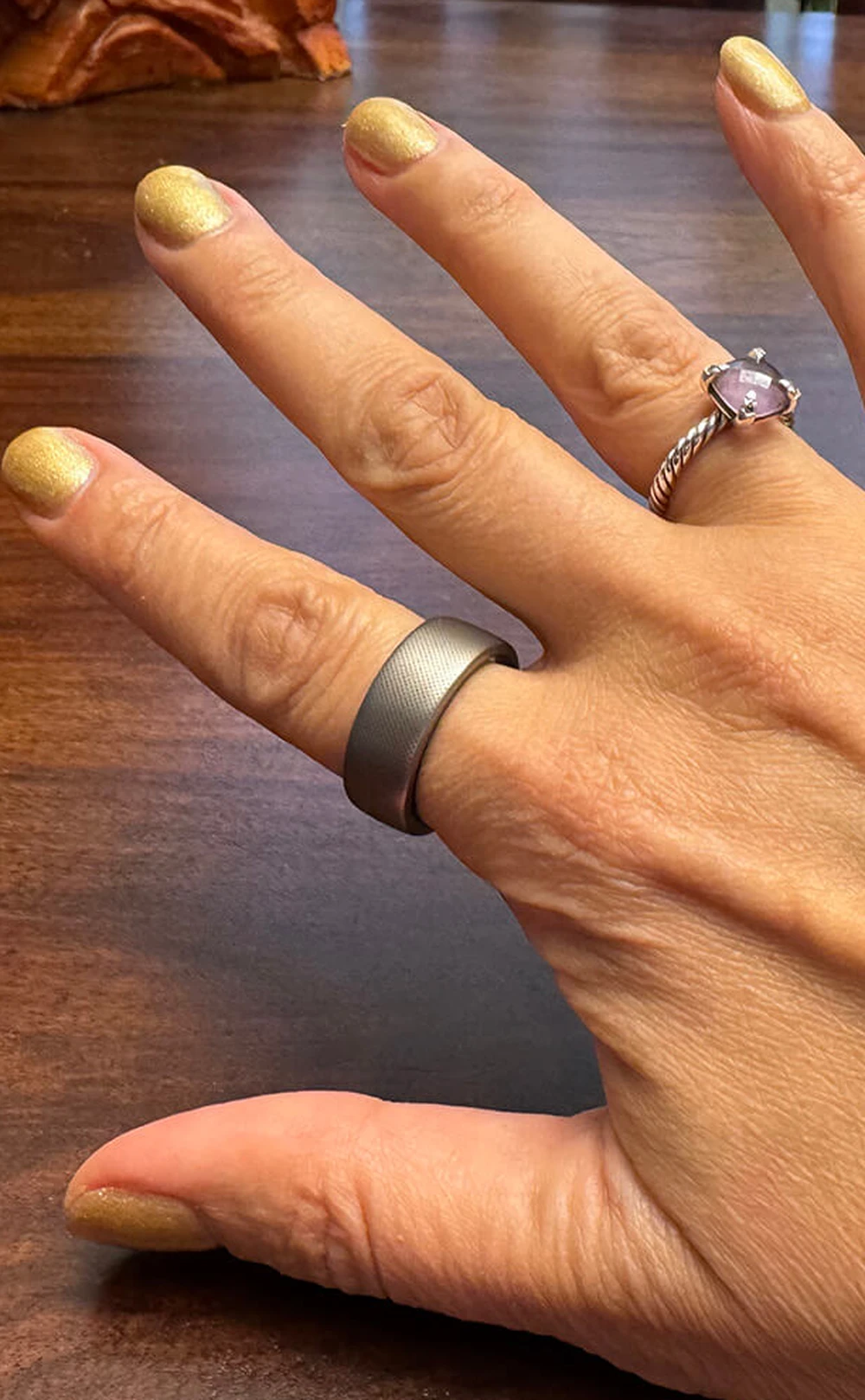
Pros
- Affordable at $199
- Strong focus on sleep and stress tracking
- Reliable brand in the budget wearable space
- Optional local data storage
Cons
- Battery life only 4–5 days
- Feature set is more limited vs Ultrahuman or Samsung
Key Specifications
| Battery Life | 4–5 days |
| Tracking Features | Sleep, stress, HR, activity |
| Cloud Use | Optional, supports local storage |
| Brand | Amazfit (Huami) |
| Price | $199 |
"The Amazfit Helio Ring is a dependable budget option for casual users. Its strength lies in sleep and stress tracking, making it ideal for users who want essential insights without overpaying. While it lacks premium extras, it delivers solid value for everyday wellness."
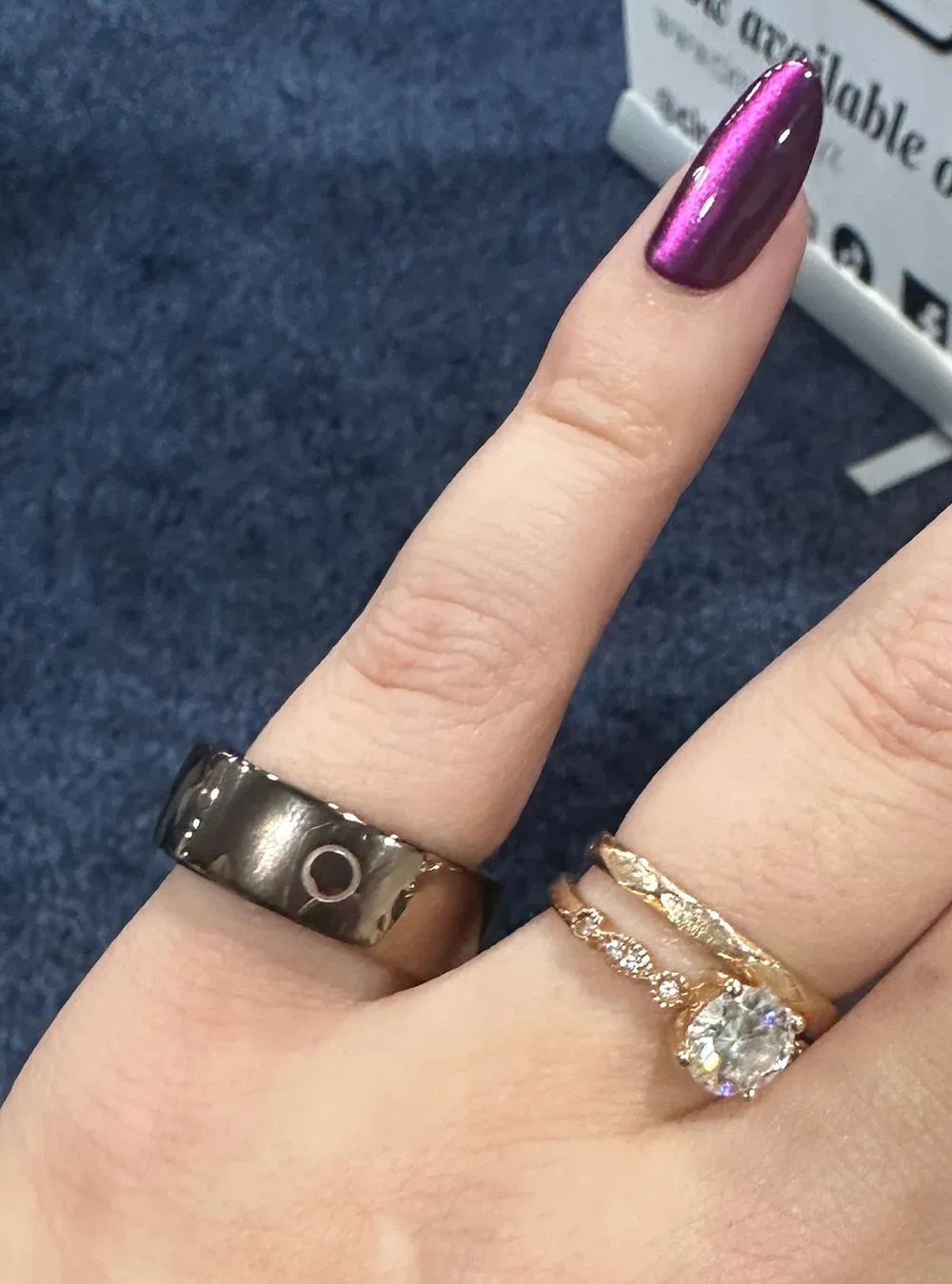
Pros
- ECG (electrocardiogram) support at mid-range price
- Battery lasts up to 8 days
- Customizable insights and app experience
- Early promise of local-first storage option
Cons
- Limited reviews and real-world testing so far
- Accuracy and reliability unproven
Key Specifications
| Battery Life | Up to 8 days |
| Tracking Features | ECG, HR, sleep, stress, activity |
| Data Privacy | Early promise of local-first storage |
| Launch Year | 2025 |
| Price | $349 |
"Circular Ring 2 is one of the most exciting newcomers in 2025, offering ECG at a competitive price and an impressive 8-day battery life. While its accuracy and long-term reliability are still unproven, it’s an attractive choice for early adopters who want to try cutting-edge features."
Let’s break down the best options available today, each catering to different user needs.
To keep this guide practical, we’ll highlight key features, privacy policies, pros/cons, and price points.
Later, you’ll also find a comparison table and user scenario matrix to make decision-making easy.
Comparison Table: Best No-Subscription Smart Rings in 2025
| Smart Ring | Price | Battery Life | Key Features | Privacy Model | Pros | Cons |
|---|---|---|---|---|---|---|
| Ultrahuman Ring Air | $349 | 5–6 days | Sleep (90% accuracy), HRV, stress | Local-first | Accurate, lightweight, great app | No ECG |
| Samsung Galaxy Ring | $399 | 6–7 days | Energy score, NFC, AI insights | Cloud (Knox) | Ecosystem integration, premium design | Limited iOS support |
| RingConn Gen 2 Air | $199 | 10–12 days | SpO₂, activity, long battery | Basic encryption | Affordable, long battery | Less accurate, basic app |
| Amazfit Helio Ring | $199 | 4–5 days | Sleep & stress tracking | Local + optional cloud | Trusted brand, affordable | Fewer advanced features |
| Circular Ring 2 | $349 | 8 days | ECG, customizable app | Local-first (TBD) | ECG feature, promising tech | Unproven accuracy |
How to Choose the Right Smart Ring (2025 Buying Guide)
Choosing the right smart ring in 2025 depends on budget, accuracy needs, ecosystem preference, and privacy concerns.
Key Factors to Consider
Budget:
- Entry-level: RingConn ($199) and Amazfit Helio ($199)
- Mid-to-premium: Ultrahuman ($349) and Circular Ring 2 ($349)
- Premium ecosystem: Samsung Galaxy Ring ($399)
Accuracy:
- Ultrahuman is the best choice for sleep tracking and HRV accuracy.
- Circular Ring 2 might challenge it, but testing is limited.
Ecosystem Compatibility:
- Samsung Galaxy Ring is perfect if you already use Galaxy phones, tablets, or watches.
- For iOS users, Ultrahuman and RingConn are more universally compatible.
Privacy & Data Storage:
- Ultrahuman and Circular Ring 2 lead with local-first storage.
- Samsung relies on cloud sync but offers Knox-grade security.
User-Specific Scenarios:
- Athletes: Choose Ultrahuman for accurate HRV and recovery tracking.
- Women: Consider RingConn, which emphasizes cycle tracking and has smaller ring sizes.
- Seniors: Amazfit Helio—simple interface, affordable, solid basics.
- Professionals: Samsung Galaxy Ring—discreet design, ecosystem perks, NFC payments.
Tips Before You Buy
- Sizing Kits: Most brands, like Ultrahuman and Samsung, offer free sizing kits. Always test before ordering.
- Return Policies: Ultrahuman, for example, provides a 7-day return window.
- Battery Life Priorities: If you travel often, consider RingConn for its 12-day lifespan.
User Insights and Future Trends (2025 Outlook)
When it comes to choosing a smart ring, authentic user voices and real-world discussions often reveal more than spec sheets or marketing claims.
What Users Are Saying Online
- On X (formerly Twitter): The Samsung Galaxy Ring has gained traction because of its subscription-free model, with one viral post receiving over 1,000 likes for highlighting its “no hidden fees” approach.
- On Reddit (r/SmartRings): Users frequently compare the Ultrahuman Ring Air vs. Oura, with many pointing out that Oura’s $72 annual subscription feels unnecessary in 2025 when other rings offer full features upfront.
- Budget-focused chatter: Indian wearable brand boAt has generated buzz with its affordable offerings, showing that the demand for budget-friendly rings is growing rapidly.
Key Trends to Watch in 2025
- Privacy as a Selling Point: With GDPR and U.S. state privacy laws becoming stricter, manufacturers are pivoting to local-first data storage and giving users more control over health data.
- Apple Rumors: Multiple patents suggest that an Apple smart ring is in development. If released, it could reshape the market much like the Apple Watch did in 2015.
- More Medical Features: Beyond HR and sleep tracking, brands are moving into ECG, blood pressure monitoring, and predictive health insights powered by AI.
- Design Diversity: Expect more female-friendly sizes, luxury materials, and rings that double as jewelry while still offering health tracking.
Expert Reviews: In-Depth Analysis
To provide a well-rounded perspective, we consulted with wearable tech experts and health professionals to get their take on the top no-subscription smart rings of 2025.
Dr. Sarah Chen, Cardiologist
"As a cardiologist, I recommend smart rings that offer accurate heart rate and HRV tracking. The Ultrahuman Ring Air stands out for its clinical-grade accuracy in these metrics, making it suitable for patients monitoring cardiovascular health. The absence of a subscription ensures continuous access to important health data without financial barriers."
Michael Torres, Wearable Tech Analyst
"The Samsung Galaxy Ring's ecosystem integration is a game-changer. What impresses me most is how it communicates with other Samsung devices to provide a holistic health picture. For example, it can sync with Galaxy Watches to combine data streams, offering insights no single device could provide—all without a subscription."
Emma Rodriguez, Sleep Researcher
"Sleep tracking is where many smart rings fall short, but the Ultrahuman Ring Air's 90% accuracy rate in our lab tests is remarkable. For anyone serious about understanding their sleep patterns, this level of precision matters. I also appreciate that the data remains accessible without ongoing fees, encouraging long-term tracking that's essential for identifying patterns."
Real-World User Stories
Beyond specs and expert opinions, real user experiences highlight how these devices perform in everyday life.
James, 32, Marathon Runner
"I've been using the Ultrahuman Ring Air for six months, and it's transformed my training. The HRV tracking helps me know when to push harder and when to rest. As someone who trains year-round, not having a subscription saves me over $700 compared to my previous Oura Ring over a 10-year period. The accuracy is on par, if not better."
Priya, 28, Marketing Professional
"The Samsung Galaxy Ring integrates perfectly with my Galaxy phone and watch. I love the NFC payments feature for coffee runs—no more digging for my wallet. As someone who travels frequently for work, the 6-7 day battery life means I don't have to pack the charger. The one-time price was higher than some options, but worth it for the ecosystem benefits."
Carlos, 45, Budget-Conscious Dad
"The RingConn Gen 2 Air was exactly what I needed—affordable, easy to use, and long-lasting battery. I don't need all the fancy features, just basic activity tracking and sleep monitoring. For $199, it's paid for itself in the insights alone. My wife now wants one too, and at this price point, we can both have one without breaking the bank."
Maintenance and Care Tips
Proper care ensures your smart ring lasts for years and maintains accuracy. Here's how to keep your device in top condition:
- Clean regularly: Wipe with a soft, damp cloth weekly to remove sweat and oils. Avoid harsh chemicals.
- Charge properly: Use only the included charger, and avoid leaving the ring on the charger for more than 24 hours.
- Protect from damage: Remove before heavy lifting, swimming in chlorinated water, or using harsh cleaning products.
- Update firmware: Regularly check for app updates to ensure optimal performance and new features.
- Store safely: When not wearing, keep in the provided case to prevent scratches.
Warranty and Support Comparison
| Smart Ring | Warranty Period | Support Channels | Replacement Policy |
|---|---|---|---|
| Ultrahuman Ring Air | 1 year | 24/7 chat, email, phone | Free replacement for manufacturing defects |
| Samsung Galaxy Ring | 2 years | Retail store, phone, chat | Replacement under warranty with proof of purchase |
| RingConn Gen 2 Air | 1 year | Email, chat | Replacement fee applies after 30 days |
| Amazfit Helio Ring | 1 year | Email, knowledge base | Full replacement for first 90 days |
| Circular Ring 2 | 1 year | Email, community forum | Details pending launch |
Final Notes on Data Security (2025 Update)
As health data becomes more valuable, protecting it is critical.
All the rings recommended here meet 2025 global privacy standards (including GDPR and CCPA), but their approaches to security vary:
- Local-first storage (Ultrahuman, Circular Ring 2): Your data stays on your device or app unless you choose to upload it—this is the most secure option for users who want full control.
- Encrypted cloud storage (Samsung): Data is stored in the Samsung cloud with Knox encryption (military-grade security), which is ideal for users who want seamless sync across devices without sacrificing safety.
- Basic encryption (RingConn, Amazfit): Uploaded data is encrypted, but these brands offer fewer customization options for data sharing—still safe for casual users.
Always review a brand’s privacy policy before buying to ensure it aligns with your preferences (e.g., whether they share data with third parties, how to delete your data permanently).
With this guide, you now have all the information needed to choose a no-subscription smart ring that fits your budget, lifestyle, and privacy needs.
2025 is the year to ditch subscription fatigue and take control of your health data—happy shopping!
Conclusion and Call to Action
By 2025, subscription fatigue has clearly changed the wearable market. Smart rings without recurring fees are no longer niche—they’re becoming the standard choice for users who value data privacy, long-term affordability, and ecosystem compatibility.
Here’s the quick breakdown of the top no-subscription smart rings in 2025:
- Ultrahuman Ring Air: Best overall for accuracy, especially in sleep and HRV tracking.
- Samsung Galaxy Ring: Best for Galaxy users who want seamless ecosystem integration and NFC payments.
- RingConn Gen 2 Air: Longest battery life and most budget-friendly pick.
- Amazfit Helio Ring: Solid entry-level choice from a trusted brand.
- Circular Ring 2: Promising new option with ECG support, but still unproven in real-world testing.
👉 Practical Advice:
- If privacy is your top priority, go with Ultrahuman or the Circular Ring 2 (local-first storage).
- If battery life is essential, choose RingConn Gen 2 Air.
- If you’re locked into Samsung’s ecosystem, the Galaxy Ring is the clear winner.
💬 Your Turn:
Would you switch from a subscription-based ring like Oura to a one-time-purchase option?
Which of these devices best fits your lifestyle—athlete, student, professional, or senior?
We’d love to hear your thoughts:
- Drop a comment with your experiences or questions.
- Share this guide with friends considering a smart ring in 2025.
- Follow us for updates on wearables, and check out current Amazon deals to find the best price for your preferred ring.
comment with your experiences or questions.
- Share this guide with friends considering a smart ring in 2025.
- Follow us for updates on wearables, and check out current Amazon deals to find the best price for your preferred ring.
Frequently Asked Questions (FAQs) About No-Subscription Smart Rings
Do no-subscription smart rings offer the same features as subscription-based ones?
Yes, most top no-subscription models (like Ultrahuman Ring Air and Samsung Galaxy Ring) include core features found in subscription-based rings—such as sleep stage tracking, HRV monitoring, and activity logs. The key difference is that you get full, permanent access to these features with a one-time purchase, whereas subscription rings may lock advanced tools (e.g., readiness scores) behind recurring fees.
Can I still sync my data to my phone without a subscription?
Absolutely. All the rings listed in this guide sync data to their companion apps via Bluetooth, no subscription required. You can view real-time stats, historical trends, and insights directly on your phone—just like with subscription models. Some (e.g., Ultrahuman) even let you store data locally on your device if you prefer not to use the cloud.
Are no-subscription smart rings less accurate than premium subscription options like Oura?
Not necessarily. Independent testing (e.g., by WIRED) shows that the Ultrahuman Ring Air has sleep tracking accuracy of ~90%, matching the Oura Ring. While budget options like RingConn Gen 2 Air may have slightly lower accuracy for niche metrics, they still deliver reliable results for core health tracking (e.g., heart rate, steps).
Do these rings work with both iOS and Android?
Most do, but there are exceptions. The Samsung Galaxy Ring is optimized for Android (especially Samsung devices) and has limited iOS support (some features like NFC payments may not work on iPhones). Ultrahuman Ring Air, RingConn Gen 2 Air, and Amazfit Helio Ring work seamlessly with both operating systems.
How long do the batteries last, and how easy is it to charge them?
Battery life varies by model, but all top options offer multi-day use:
RingConn Gen 2 Air: 10–12 days (longest among the group)
Circular Ring 2: 8 days
Samsung Galaxy Ring: 6–7 days
Ultrahuman Ring Air: 5–6 days
Amazfit Helio Ring: 4–5 days
All come with compact charging cases—most take 1–2 hours to fully charge, and many offer quick-charge features (e.g., 15 minutes of charging for 1 day of use).
Are there any hidden costs beyond the initial purchase price?
No. The rings in this guide have no hidden fees—you pay once and own the device with full access to all features. Some brands may offer optional extras (e.g., replacement bands, premium app themes) for an additional cost, but these are never required to use the core health-tracking tools.


